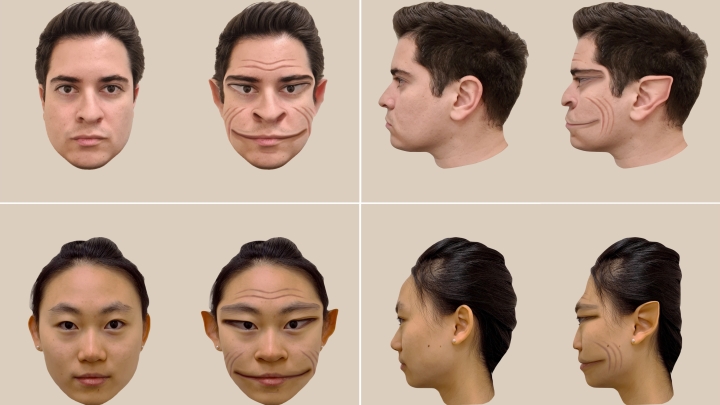Imagine if every time you saw a face, it appeared distorted. For those who have a very rare condition known as prosopometamorphopsia, which causes facial features to appear distorted, that is reality.
As the website on what is known as PMO explains, “‘Prosopo’ comes from the Greek word for face ‘prosopon’ while ‘metamorphopsia’ refers to perceptual distortions.” The distortions can affect the shape, size, color, and position of facial features, and PMO can last for days, weeks, or even years.
A new Dartmouth study published in the “Clinical Pictures” section of The Lancet reports on a unique case of a patient with PMO. The research is among the first to provide realistic visualizations of how a patient experienced facial distortions.
The patient, a 58-year-old male with PMO, sees faces without any distortions when viewed on a screen and on paper but sees distorted faces that appear “demonic” when viewed in-person. The case is especially rare because he does not see distortions of faces across all contexts.



Is this clickbait science?
I think The Lancet is a reputable journal. They seem to have conveyed the findings of this article well. With quotes from the authors as well. Seems like an adequately scientific article with very little exaggeration. So, by my standards I wouldn’t consider it click bait.
The title is definitely clickbaity but the science is real as far as I can tell.
This reminds me though: I knew a woman with mental health issues who was convinced that people around her were constantly making faces at her. The article says this specific thing is very very rare, and more neurological than psychological when it happens, but still I wonder a little bit. 😕
No, it’s a rare but interesting condition that could eventually have implications for adjacent psychological or physiological research.